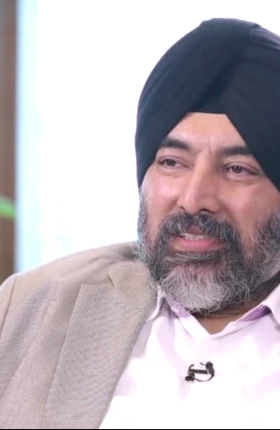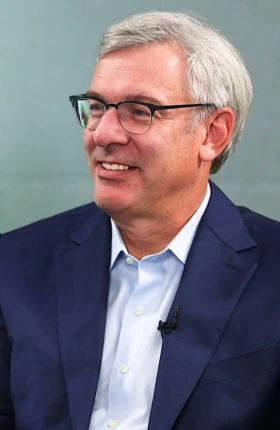Malaysia is a diverse nation with ambitious economic aspirations. Najib Razak, the country’s prime minister since 2009 and a public servant since the mid-1970s, has been working both to unify and to advance Malaysia. Najib sees the two goals as inseparable: progress must benefit all slices of Malaysian society and all regions, he contends, if it is to be sustainable.
To manage the complexity of bringing an entire nation together while also moving it forward, Najib embraces a strong vision that he introduced when he first took office as Malaysia’s leader: “People First, Performance Now.” This vision helps drive Malaysian policies in areas as varied as trade, economic development, and training and development.
Transformation is another key part of Najib’s strategy in dealing with complexity. He encourages civil servants to operate more like activists and to partner with the private sector in achieving societal goals.
In this multicultural and multiethnic nation, Najib’s goals are not easy to achieve. Ethnic Malays make up about two-thirds of the nation’s population—the remaining third of the country’s people are of Chinese or Indian descent—and tension has at times strained relations among the three groups.
Najib recently sat down for a discussion with Vincent Chin, senior partner and managing director in BCG’s Kuala Lumpur office, to discuss complexity. Edited excerpts from that conversation follow.
About Razak Najib
At a Glance
Born in Kuala Lipis, Malaysia
Year Born: 1953
Education
1974, bachelor’s degree in industrial economics, University of Nottingham
Career Highlights
2009–present, prime minister, Malaysia
2008–present, minister of finance, Malaysia
2004–2009, deputy prime minister, Malaysia
1999–2008 and 1990–1995, minister of defense, Malaysia
1995–1999, minister of education, Malaysia
1976–1982 and 1986–2009, member of parliament, Malaysia
Outside Activities
Spending time with family
Reading
Golfing
Photography
Jungle trekking
What is the legacy you want to leave your nation?
Malaysia is a developing economy with strong fundamentals and one of the highest per-capita GDPs in Southeast Asia. Our growth has been driven by factors in which we as a nation have clear advantages, including natural resources, a trained workforce, and a competitive cost structure. Our plan calls for Malaysia to become a high-income, developed economy by 2020, and we are making strong progress toward reaching that goal.
More broadly, I want Malaysia’s growth to benefit all Malaysians—to be inclusive growth. Early in my term as prime minister, I introduced the philosophy of “People First, Performance Now.” While raising our GDP, we also need to be improving our standards of living, capabilities, and opportunities.
I recently announced a program to improve our development of human capital, targeting those who are not participating fully in Malaysia’s success. We will be strengthening our training and development programs for employees. We are also looking at a special program to help small- and medium-sized enterprises become public companies. In addition, we have set up a program to build affordable housing for Malaysians in less-developed regions. These are just some examples of policies that speak to the people-first, performance-now philosophy of inclusive growth.
This is not just my legacy but also that of my predecessors—all of whom were instrumental, in one way or another, in spearheading the government’s policies of inclusiveness since our country’s independence.
Has complexity increased in government? What are the major complexities you face, and how do you address these?
One of our key complexities is managing the tradeoff between our support for globalization and regionalization and our commitment to the people, or rakyat, and local businesses. My government supports free trade, but we need to make sure that trade arrangements with our partners are fair and beneficial to Malaysians. We will not promote free trade at the expense of our people or local firms.
On the people front, Malaysia is a multiethnic, multicultural nation. This diversity has been a source of strength but also something that we need to manage. So we make sure that our social programs benefit all Malaysians regardless of ethnic background, religious beliefs, or culture.
Our people-first, performance-now philosophy gives us clarity of purpose, which guides our decision making. We do not proceed with a policy or program that does not deliver on this philosophy.
When addressing complexity, how important is having a shared understanding of goals? Does it help improve collaboration and reduce bureaucracy?
It is very important that my cabinet ministers and the rest of government share the same vision and philosophy for the country. For real transformation to take place, I must win not only the minds but also the hearts of my colleagues. Without this common understanding, we cannot achieve our vision of a developed economy that is inclusive and generates well-being for all.
To achieve these goals, we need to transform government. We must remove red tape, build capabilities, and improve overall public-service delivery. I set up Malaysia’s Performance Management and Delivery Unit to help the country understand the need for transformation and the processes associated with it.
We have a broad set of target outcomes, but beyond these, ministries and agencies are empowered to deliver the transformation and be accountable for results. To date, several of my ministries and agencies, including the Treasury and the Public Service Department, have initiated large-scale organizational transformations that are already bearing fruit.
What are the capabilities you are seeking to build in government to cope with a complex, global, and connected world? How do you build these capabilities?
The government of the twenty-first century will need to be much more sensitive to what is happening around us and must be able to respond quickly to the needs of the people as well as the private sector. Civil servants will need to think and work in different ways, especially in their interactions with the private sector.
The private sector is the key engine for our nation’s economic development. The government is partnering with the private sector on several critical infrastructure projects. I need the civil servants to enable the private sector to succeed on these and other projects by developing human capital and reducing regulatory burdens.
We created the Razak School of Government in 2010 to develop high-performing and knowledgeable civil servants. The school is very much at the heart of the government transformation I talked about earlier.
How do you ensure that you have your finger on the pulse of the people on the frontline? What mechanisms are in place to ensure that people’s insights percolate up to you?
I regularly “go down to the ground” and talk with civil servants and with people in communities and the private sector. I have also set up platforms that focus on the areas that are high on my agenda, including economic development, fiscal policies, national security, and social welfare. The leaders of these committees and councils in turn have their own networks that reach the frontline to ensure that the highest levels in government are kept abreast of grass-roots developments.





